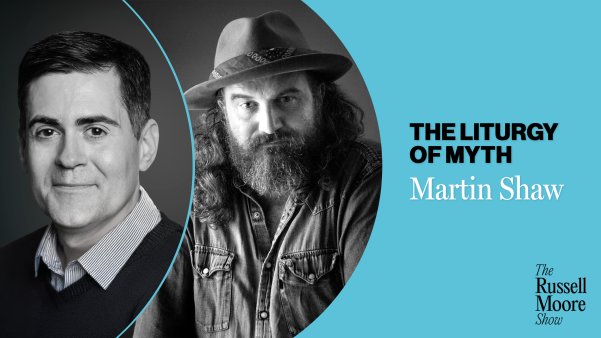This article will feature BibleMesh, David Platt’s Brook Hills, Biblefresh, and a Bible literacy quiz.
Americans love their Bibles. So much so that they keep them in pristine, unopened condition. Or, as George Gallup Jr. and Jim Castelli said in a widely quoted survey finding, “Americans revere the Bible but, by and large, they don’t read it.”
Anecdotes abound. Time magazine observed in a 2007 cover story that only half of U.S. adults could name one of the four Gospels. Fewer than half could identify Genesis as the Bible’s first book. Jay Leno and Stephen Colbert have made sport of Americans’ inability to name the Ten Commandments—even among members of Congress who have pushed to have them posted publicly.
Perhaps the first step toward improved Bible literacy is admitting we have a problem. A 2005 study by the Barna Group asked American Christians to rate their spiritual maturity based on activities such as worship, service, and evangelism. Christians offered the harshest evaluation of their Bible knowledge, with 25 percent calling themselves not too mature or not at all mature.
And we know it’s not “those other churches.” We are not surprised by a 2004 Gallup finding that a mere 37 percent of teenagers can find the quotation from the Sermon on the Mount when given four choices. And we are not surprised that only 44 percent of born-again teenagers could do the same.
It could be worse. The same Gallup study of 1,002 teenagers found them basically familiar with Adam and Eve, Moses, the Good Samaritan, the Golden Rule, and the meaning of Easter. And the Bible Literacy Project (BLP) now provides resources for more than 360 public schools in 43 states.
“We’ve had no problem conveying the importance of biblical literature for understanding everything from public discourse to reading Toni Morrison,” says BLP general editor Cullen Schippe.
But pastors, professors, and others committed to teaching the Bible have identified a problem far larger than fluency with basic characters and stories. It’s one thing to recognize the reference to the Promised Land in a Martin Luther King Jr. speech. It’s another to recognize biblical references within the Bible itself. Even weekly churchgoers who know the names and places struggle to put it all together and understand the Bible as a single story of redemption.
The problem struck a nerve for Schippe as he sat in a hotel room thumbing through a copy of the Book of Mormon. Some of the characters were familiar, but the overarching story befuddled him. That, he realized, was how a growing number of Americans now see the Bible.
Fortunately, motivated churches, small groups, and even public school teachers are finding ways to take biblical literacy beyond name recognition.
Sunday School 2.0
BibleMesh builds a tech tool for the rest of the church.
Computer technology has long been a boon to high-level biblical studies. Scholars can instantly search archives of ancient manuscripts, essentially turning their offices into world-class libraries. Pastors likewise benefit from popular software that aids original language studies and sermon preparation. But the gap is widening.
“At this rate,” Emmanuel Kampouris says, “the Bible will be just a historical artifact for seminarians.”
Kampouris is former chairman and chief executive officer of American Standard Companies (now called Trane), the giant manufacturer of air conditioners, bath and kitchen fixtures, and automotive supplies. Renowned for his ability to turn around failing businesses, Kampouris is also the force behind BibleMesh, a web-based tool launching in June. Tim Keller is the program’s primary commentator, who walks Christians through the biblical storyline in a 90-minute video. Other contributors include the late First Things editor Richard John Neuhaus, former Anglican Archbishop Peter Akinola of Nigeria, and nondenominational pastor Alistair Begg.
Scholars and pastors such as new Wheaton College president Philip Ryken, Covenant Life Church’s Joshua Harris, and Vaughan Roberts, author of God’s Big Picture: Tracing the Storyline of the Bible, have contributed 300 articles and 200 two-minute reflections.
“The primary selling point is to really teach the gospel as the biblical story and not just disassociated biographical studies, facts, and events,” says project theological editor Greg Thornbury. “That’s the idea behind the name BibleMesh—that the biblical understanding of reality is interconnected with the Good News about Jesus.”
Rebuilding the Big Story
The rise of historical criticism in the 19th century was largely responsible for downplaying the Bible’s overarching metanarrative, says Thornbury, dean of the School of Christian Studies at Union University. But evangelicals have done their part as well. Scholars’ narrow specialization in one aspect of the Old or New Testament can trickle down from seminaries to pastors, then to local churches.
As a result, sermons about King David often amount to little more than moral biography: David committed adultery and murder, and we shouldn’t. Or pastors may search for allegorical meaning behind the Old Testament figures, matching a sermon point on courage to each of David’s five smooth stones. In either case, churchgoers do not see how David contributes to the messianic pattern fulfilled in Christ.
Bucking the long trend toward academic specialization, Beeson Divinity School in Birmingham, Alabama, has no departments. No matter their expertise, all Beeson faculty are professors of divinity.
“We’re trying to be sure that students don’t just have a superficial knowledge of Scripture but can explain the Bible as a connected story,” says Timothy George, Beeson’s founding dean. “Just knowing facts and names would be an improvement, but it’s not what is needed … in the fragmented lives around us.”
BibleMesh hopes to remedy the problem of fragmented biblical understanding with a personalized learning tool that tracks what users have studied and where they are weak. The site will help users memorize Scripture and remember facts, names, and places from the passages they have read. Another component allows pastors and small-group leaders to shape their own courses. Later channels will teach church history and biblical Greek and Hebrew.
“Every church intuitively knows it needs a discipleship program that goes beyond the preaching event,” Thornbury says. “I hope BibleMesh will be Sunday school curriculum 2.0. It’s an update on what used to be done in Sunday school: taking Christians through the Bible.”
Secret Church
David Platt’s congregation has a hunger for Scripture. Obeying it is harder.
At an average of 55 minutes, David Platt’s Sunday morning sermons at the Church at Brook Hills in Birmingham, Alabama, are already far longer than those of most pastors. But to Platt, they seem awfully short. He has been struck in his travels by underground Asian house churches that study the Bible together, under the threat of persecution, for as long as 12 hours in one sitting. He has imported this practice into a biennial event that Brook Hills calls Secret Church. Starting at 6 p.m., Platt preaches for six hours on a single topic, such as a survey of the Old Testament. About 1,000 people, mostly college students and young singles, turned out for the first Secret Church. Since then, other Secret Church topics have included the Atonement and spiritual warfare. It is now so popular the church requires tickets.
“It’s one of my favorite sights as a pastor to look out at 12:30 a.m. and see a room full of 2,500 people, their Bibles open, soaking it in,” Platt says.
Platt believes churches have lowered the bar for biblical and theological literacy by treating it as something for professionals. Equating serious biblical engagement with seminaries rather than the local church has impoverished both institutions, he says. So Brook Hills has launched its own training center for lay leaders and is preparing a one-year training program for church planters, with separate tracks for full-time pastors and bi-vocational ministers. Platt recognizes that smaller churches lack the human and financial resources to offer these programs, but he thinks the principles transfer to churches with only 50 members.
“The New Testament pattern is churches raising up leaders and missionaries,” Platt says. “We have people begging for this. The more they taste the Word, the more they want it, and the more they want to minister. We’ve had about 1,000 each year go overseas making disciples. The more they go, they more they realize they need to be equipped to be a part of what God is doing around the world.”
This equipping is crucial for Platt. Disciples of Christ do not merely pursue Bible knowledge for its own sake, he says. It changes the way they live, but not by merely offering them tips for parenting or financial freedom. Rather, the Bible gets them in touch with the Holy Spirit, who conforms them to Christ’s image.
‘We own more Bibles than we will ever use, but we are slowly starving to death because we have lost our appetite for Scripture.’ —Krish Kandiah, director of Churches in Mission for the Evangelical Alliance UK
One year ago, Platt endured a crisis of belief as he saw how, throughout the narrative of Scripture, God equates faith with care for the poor. Platt believes, preaches, loves, memorizes, and studies the Word. But he wasn’t sure if he had submitted his life to its teachings.
“We are ignoring the poor with the way we’re living in Birmingham,” Platt finally told his congregation. “If we believe the gospel, then our opulent living compared to the rest of the world does not make sense. We need to make major changes.”
The rebuke did not sit well with everyone. But Platt and his wife set an example by selling their house and living more simply. One wealthy church member called him crazy, but soon he too sold his house to invest in needs around the world. Biblical literacy is a precursor to biblical transformation.
A United Effort
British Christians join to read, translate, and champion the Word.
In 2011, English-speaking Christians will commemorate 400 years since the debut of the King James Version of the Bible. So why does a sense of consternation trump celebration?
“More than 200 million people have no access to spiritual food, with no Scriptures in their own language,” says Krish Kandiah, a director at the Evangelical Alliance UK. “Yet we in the West, despite owning more Bibles per household than we will ever use, are slowly starving to death because we have lost our appetite for Scripture.”
Kandiah leads a small team of activists behind Biblefresh, a new initiative promoting Bible reading, translation, and teaching. A diverse collection of the country’s leading Anglicans, Methodists, Baptists, and other UK believers have united behind a vision to help Christians experience the Bible in new ways during 2011.
Biblefresh has teamed with churches in Burkina Faso to help translate the Bible for a language group that has no access to Scripture. Spring Harvest, the UK’s largest Christian festival, will teach about 50,000 Christians over the next two years how to interpret the Bible. Soul Survivor, the UK’s biggest Christian youth event, is making a greater push for a daily Bible reading program. And a group of pastors has pledged to preach on the so-called “terror texts,” in which genocide, stoning unruly children, and slavery seem to be condoned. (Avoiding them has only hurt confidence, they say.)
“This privilege should unite us at a time when the evangelical church in the UK is increasingly fragmented, with tribal groups raging over debates surrounding the role of women, the definition of atonement, and the place of charismatic gifts, while church attendance figures are in decline,” Kandiah says. “Whatever denomination or tribe we tend toward, all of us know we need to do better with the Bible.”
Collin Hansen is a CT editor at large and coauthor, with John Woodbridge, of the forthcoming A God-Sized Vision: Revival Stories That Stretch and Stir (Zondervan).
A Different Kind of Bible Literacy Quiz
So you can name the 12 disciples, the 10 Commandments, and the 7 days of Creation. But do you know how they fit together?
1. What lesson from the life of Jonah did Jesus talk about? (a) Jonah learned to obey God, because disobedience is punished. (b) God forgives the repentant as he forgave Nineveh. (c) God rescues us as he rescued Jonah when he was cast overboard. (d) Jonah spent three days in the fish as Jesus would spend three days in the tomb. (e) People are as wicked today as they were in ancient Nineveh.
2. Melchizedek, king of Salem, met with which biblical figure? How is Jesus like Melchizedek?
3. Besides Jesus, name five biblical figures who rose from the dead.How were these incidents different from Jesus’ resurrection?
4. Name four biblical instances where the number 40 is important.
5. Whose faithfulness is contrasted with the Israelites’ grumbling in Exodus 16-18?
6. Name the four women besides Mary who are included in Jesus’ genealogy (Matt. 1:1-17), and describe their circumstances.
7. “No prophet is accepted in his hometown,” Jesus said after his inaugural sermon (Luke 4:14-30). He then gave examples from the lives of two other prophets. What were they?
Answers
1. (d) See Matthew 12:40.
2. Melchizedek, “priest of God Most High,” met with Abram (Gen. 14). Jesus is like him in that he is a priest forever (Ps. 110:4; Heb. 5:6), once and for all, and greater than the priesthood of Aaron (Heb. 7). The writer of Hebrews says that he was “without beginning of days or end of life” (7:3).
3. The son of the widow of Zarephath (1 Kings 17); the son of the Shunammite woman (2 Kings 4); the dead man who touched Elisha’s bones (2 Kings 13:21); the son of the woman of Nain (Luke 7); the daughter of Jairus (Mark 5); Lazarus (John 11); Dorcas/Tabitha (Acts 9); Eutychus (Acts 20); and the dead raised when Jesus died (Matt. 27:52). Each was resuscitated, not resurrected; they died again. Jesus’ resurrected body was unbound by normal physical properties, though he ate and could be touched.
4. Days Jesus spent tempted in the wilderness (Matt. 4:2); days Jesus spent with his disciples after the Resurrection (Acts 1:3); days and nights of rain in the Flood (Gen. 7:12); Moses’ years in Egypt and then in Midian (Acts 7); years the Israelites spent in the wilderness; Moses’ days on Mount Sinai (Ex. 24:18; Deut. 9:18); days the spies were in Canaan (Num. 13:25); Elijah’s days journeying to Horeb (1 Kings 19:8); Nineveh’s days to repent (Jonah 3:4); the years of rule of many judges and kings of Israel.
5. Moses’ father-in-law, Jethro, the Midianite priest (fitting the pattern of the faithful outsider contrasted with the unfaithful Israelites; see also Rahab, Caleb, etc.).
6. Tamar, who masqueraded as a prostitute and slept with her father-in-law (Gen. 38); Rahab, a Canaanite prostitute (Josh. 2, 6); Ruth the Moabite (Ruth 2-3); and Bathsheba, wife of Uriah, who was murdered by David (2 Sam. 11).
7. Elijah’s care for the widow in Zarephath (instead of the widows of Israel), and Elisha’s healing of Naaman the Syrian (instead of the lepers of Israel).
Copyright © 2010 Christianity Today. Click for reprint information.
Related Elsewhere:
More information about BibleMesh, David Platt’s Brook Hills, and Biblefresh can be found on their respective websites.
Previous Christianity Today articles on reading the Bible include:
How the Early Church Read the Bible | The church fathers show us how to read Scripture imaginatively. (January 18, 2010)
Finding Meaning in the Pentateuch | Powerful endorsements bolster John Sailhamer’s new tome on the Bible’s first five books. (January 11, 2009)
Year of the Study Bible | Christian publishers struck the right chord in 2008. (April 1, 2009)









